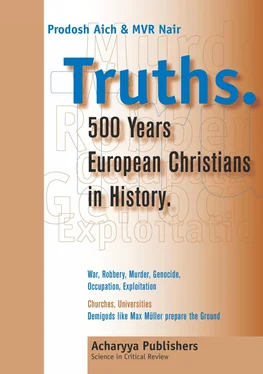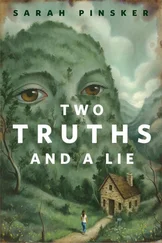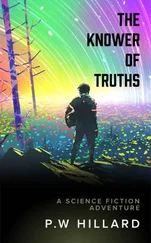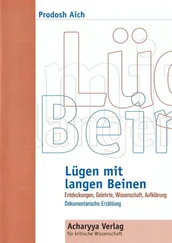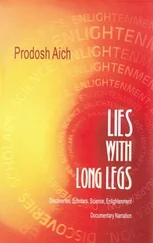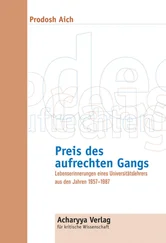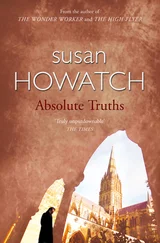Sir John Shorehasn’t mentioned Alexander Hamiltonat all in his 13 volumes on Sir William Jonespublished in 1804. We continue reading Thomas R. Trautmann, a favourite pupil of the renowned “historian” Arthur Llewellyn Basham.Page 115:
“Alexander Hamilton, member of the, Asiatic Society and retired officer of the East India Company’s army, became, by virtue of his appointment to the East India College, the first Sanskritist to hold a professorship in an institution of higher learning in Europe.”
On page 138–139: “Alexander Hamilton, the first Sanskrit professor in Britain (at the East India College) , became the conduit by which knowledge of Sanskrit passed from Calcutta to Paris and thence to Germany. Hamilton, who had served as an officer in the army of the East India Company, learned Sanskrit in Calcutta and became a member of the Asiatic Society (did he learn Sanskrit before he became a member?) ; in 1790 he had petitioned the government for facilities to study Sanskrit. He resigned his commission and returned to Britain in 1796, where he lived off the proceeds of journalism, writing for the Monthly Review for a time, and then for the Edinburgh Review, of which he was one of the founders ( Thomas R. Trautmannis capable of wondrous fantasies, isn’t he?) . By the peace of Amiens (25. March 1802) hostilities between Britain and Napoleonic France were suspended, and Hamilton like many other Britons, took the opportunity to travel to France, only to become a prisoner of war by the decree of 23 May 1803, when war resumed. Hamilton was however treated most liberally by the French authorities, being allowed to live wherever he liked in Paris and to move about freely. He spent the time in the company of Orientalists, especially Louis Mathieu Langlès, with whom he collaborated in cataloguing the Indian manuscripts in the Bibliothèque Nationale, which service was probably the reason of his liberty. He also taught Sanskrit to a few students, of whom the most notable was Friedrich Schlegel, whose Über die Sprache und Weisheit der Indier” (On the language and wisdom of the Indians, 1808) had a vast effect in fomenting German Indomania and Sanskrit study. Schlegel’s brother August Wilhelm Schlegel later repaired to Paris to study Sanskrit, going on to become the first professor of Sanskrit in Germany (1818) , and his student ( Thomas R. Trautmann’swonder-some discovery!) Franz Bopp also went to Paris for Sanskrit study, as did Friedrich Max Mueller somewhat later.”
Why do we meet swindlers only? A forgery of history par excellence . We are not dealing with singular cases. In this area, we are yet to find a singular case of academic correctness and honesty. We assume that our findings are only a peak of the general dirty morass.
We are still dealing with the same Alexander Hamiltonwho wrote that application. Thomas R. Trautmanndoesn’t run any risk spreading eloquently false (hi)stories. After all, he is a “renowned historian” with “profound knowledge” in anthropology too. Anthropology is that branch of “science” which followed the “philology” to which we owe “racism”.
And if the false presentations get exposed, nothing will happen to Thomas R. Trautmann. Because here he makes a footnote to shun off his responsibility. Though, this is his first remark relating to Alexander Hamilton: “For the information in this paragraph I rely on Rosane Rocher’s biography (1968) and article (1970) on Hamilton, and on Jane Rendall’s work on the Scottish Enlightenment.” A fine state of affairs, isn’t it?
Later on page 148–149 he quotes Alexander Hamiltonmore than once. These are quotes from Edinburgh Review, from articles ascribed to him by Rosane Rocher. Here are a few samples of how nicely they are presented:
“Hamilton embraced Colebrooke’s (We shall deal with Colebrooke also, but in due course in a later chapter.) unity of origin theory and deployed it in his Edinburgh Review piece...
He believed it not improbable that the Brahmins entered India as conquerors...
He thought however that the Paiśāci or demons’ language spoken of by the ancient Indian grammarians was totally distinct from the Sanskrit in its origin...that one great nation formerly peopled Hindustan, and were driven, by invaders, to those hilly countries which they still occupy. (Hamilton 1808:93). ”
Statements of this category are, leniently spoken, products at best of sick fantasy. Again extremely leniently spoken, such statements express cultural prejudices of the writers of their culture rather than the chronicler reports of a Megasthenes. However, for the “scholars” like “ Thomas R. Trautmanns” any printed word in the Edinburgh Review or anywhere else is a “reliable” source. And it is a rather cheap trick when he just refers to quotations in brackets like: ( Hamilton 1808:93 ). In this case, it is a no-named article in the Edinburgh Review.What do these “ Thomas R. Trautmanns” and “ Arthur Llewellyn Bashams” do when they do not find the needed printed words for their “scholarly” deliberations? We leave this question unanswered, but keep it in memory.
Thomas R. Trautmanncontinues (p. 149)
“Jones, in his eighth discourse, had spoken of the Indian mountaineers as ‘many races of wild people with more or less of that pristine ferocity, which induced their ancestors to secede from the civilised inhabitants of the plains and valleys.’ He thought they sprang from the old Indian stem, although some of them soon intermixed ‘with the first ramblers from Tartary, whose language seems to have been the basis of that now spoken by the Moguls’ (Jones 1807, 3:172–173). Hamiltons proposal of the unitary language and aboriginal character of all the ‘mountaineers’ goes considerably further than this. But taken all together, the testimony of Jones, Colebrooke and Hamilton is that British belief in the ethnological and linguistic unity of India was never complete.”
How did Sir William Jonescome to know all these? Sources? Is there any need ask for sources? Is there any need of sources? Are not ‘ Jones, Colebrooke and Hamilton’enough? We are dumbfounded, indeed.
Thomas R. Trautmannhas decorated his book Aryans and British India with a dedication: “In memory of A. L. Basham, British Sanskritist, historian of India, guru, friend” . We remember the blessings Arthur Llewellyn Bashambrought us at the beginning of this chapter:
“In 1795 the government of the French Republic founded the École des Langues Orientales Vivantes, and there Alexander Hamilton (1762- 1824), one of the founding members of Asiatic Society of Bengal, held prisoner on parole in France at the end of the Peace of Amiens in 1803, became the first person to teach Sanskrit in Europe.”
*****
The whole scenario of these celebrated scholars seems to be a dirty morass of darkness, dishonesty and deception. Recent “scholars” attribute Alexander Hamiltonthe lofty height of powerful language like that of Francis Jefferey, Sydney Smithand Henry Brougham. However, there is not a single essay bearing his name. We recall his application dated March 4, 1790. Our imaginative capacity fails absolutely to grasp how and where he could have improved the quality of his writing. Was he not battling for physical survival, compelled to desert his wife and son?
Читать дальше
